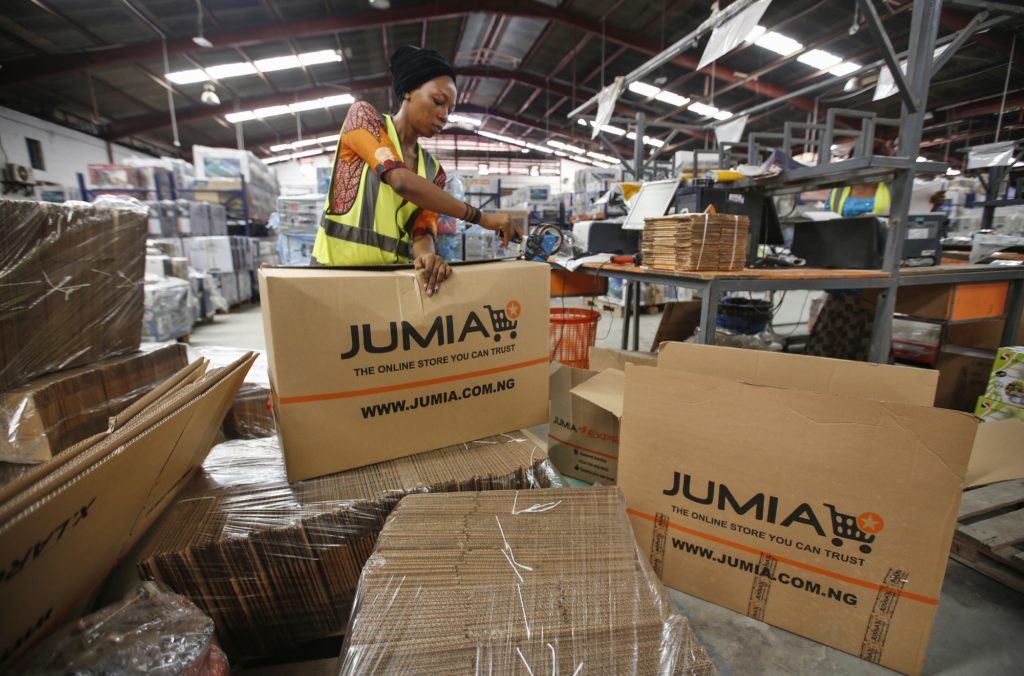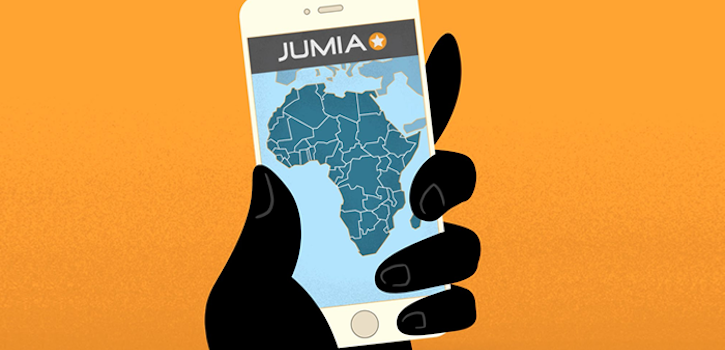The story of Jumia, often referred to as “The Amazon of Africa,” is a captivating tale of ambition, hope, and the tumultuous world of e-commerce. When I first signed up to sell on Jumia I thought they were a Nigerian owned online marketplace. I found out many years later that Jumia was founded in 2012 by Sacha Poignonnec and Jeremy Hodara. There were two co-founders in the inception of Jumia; Tunde Kehinde and Rafael Kofi Afaedor from Nigeria and Ghana but they both walked away less than 2 years after the business was born. This online marketplace rapidly gained recognition as one of Africa’s most promising tech startups, but its journey on the stock market has been nothing short of a rollercoaster ride. No body saw the fall of Jumia coming.

Jumia’s rise began with the idea of bringing e-commerce to a continent with vast untapped potential, Africa. The company set its sights on Africa’s growing middle class, offering them an array of products from electronics to fashion and even groceries. By 2019, Jumia had become the first African tech company to be listed on the New York Stock Exchange (NYSE). Its initial public offering (IPO) generated considerable excitement, and the stock price soared.
While the ascent was impressive, it was not without its challenges. Jumia faced criticism for its corporate governance and business practices. Questions arose about its financials and whether it truly represented a profitable investment opportunity. These issues, combined with broader concerns about the sustainability of e-commerce in Africa, cast a shadow over the company’s stock performance. I was privileged to have joined Jumia early and watched the company change over time. Leading up to being listed on the NYSE a lot happened very fast. As a seller on a platform I was quite surprised when I heard the news because the rate at which local sellers were leaving the platform was pretty alarming. I shook my head and thought maybe this was only happening in Ghana. It seems like I saw the fall of Jumia coming at this point. You see, Jumia had just introduced “Jumia global” which was in essence allowing Chinese sellers to sell on their platform. Similar to what happened at Amazon, the local sellers felt betrayed and really could not compete with the prices these Chinese sellers were quoting. Low prices meant happy customers so Jumia held tight.

Jumia’s stock price reached its peak in April 2019, shortly after its IPO, when shares were trading at around $46.99. However, the stock soon started a gradual decline. The fall was probably accentuated by disappointing financial results, challenging business environment in Africa, including issues related to logistics and delivery. It seemed like the vision of the online store wasn’t stable. At one point it was meant to empower Africa and in the blink of an eye it was a race to seem profitable. Jumia closed operations in many African countries soon after the IPO which was also quite surprising and raised a lot of eyebrows.
The COVID-19 pandemic brought a mixed bag of challenges and opportunities for Jumia. While there was an initial surge in demand for e-commerce as lockdowns and restrictions were imposed, the company also faced logistical hurdles. The pandemic highlighted the need for efficient last-mile delivery networks, a challenge for many e-commerce businesses in Africa. Jumia lost out on an opportunity to make groundbreaking returns. I expected to see some kind of expansion or at least better streamlining to processes after the IPO but I didn’t. Buyers also started getting frustrated with the long delivery times for products sold by Chinese sellers. Some packages never arrived and this dented the image of Jumia.

In response to the challenges, Jumia began to pivot its focus. The company increasingly turned its attention to fintech services. JumiaPay, its digital wallet and payment platform, became a central component of the business. This shift garnered attention from investors who saw potential in the growing fintech sector. New value added services were also introduced to sellers. At a point it seemed like Jumia was ready to bill sellers for anything at all.
Today, Jumia’s stock is trading at about 20 times lower in value as compared to its peak. Today it’s trading at around $2.60. This massive fall of Jumia on the stock market caused a lot of trouble. The company faced competition not only from global e-commerce giants but also from other local startups. However, there has not been a big enough business to take over from Jumia but I believe with more investors looking to invest in the continent it’s only a matter of time. There’s already word out on Amazon hoping to start operations in South Africa so who knows? The next big e-commerce platform in Africa may just be a familiar name.
The future of Jumia remains uncertain. Whether it can rise from its setbacks and redefine its place in the market is a question that investors and observers continue to watch closely. My store on Jumia is still active and even though I don’t make sales daily on it I am just keeping it alive to see what happens in the future.


